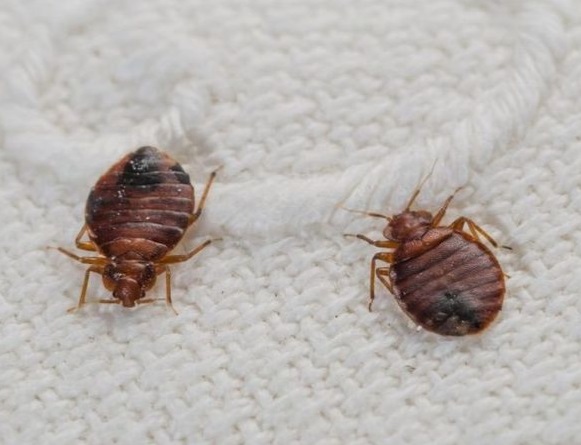What You Need to Know About Bed Bugs

What You Need to Know About Bed Bugs
Think about how many hours that you spend in your bed every night. Now, picture little bed bugs crawling in between those sheets. It’s enough to send goosebumps up your neck… and get you hunting for bedbug treatment strategies.
You’ve heard the horror stories of traveller’s staying in hostels and getting bitten by bedbugs. Why? Mainly because the beds weren’t clean. Like mosquitoes, bed bugs feed on blood from humans, and they’re most active at night – getting ‘full’ while you sleep.
How to spot bed bugs?
They’re small, flat, and oval in shape. While they can’t fly, they rely on humans to move them from one place to the next (gross, right!) A red/brown colour and between one to seven millimetres long, detecting bed bugs are difficult. They hide in the tiny cracks and crevices of your bed. But in big infestations, you should be able to spot them in your bedding or on the mattress. Look for clusters of dark spots on your bed, which are dried excrement on infested surfaces.
But the best way to be able to tell if you have bed bugs is to check your skin. Are there visible bites, especially after you wake up? Is it itchy or agitated? These critters bite your exposed skin, especially the upper body, neck, arms, and shoulders. Inspect your body for red welts, swelling, or irritations.
Now, check the bite. It might look like the following:
- A bite with a red, swollen area and a dark red centre
- Bites in a line or grouped together in a small area
- Blisters or hives at the bite site.
Are they harmful?
You might be walking around with big red spots on your body, but they’re not harmful. Bed bugs don’t transmit diseases when they bite. The biggest issue, however, is the effects they have on your skin (and sleep). The irritation might lead to a skin infection, mainly due to excessive scratching.
If you suffer from allergies, you might be at greater risk. The most common symptoms that occur after an allergic reaction include engorged bite marks, painful swelling, and burning at the bite site. In some cases, it can lead to an anaphylactic response. Even if the itchiness is minimal, it’s not a nice feeling. Infestations need to be attended to immediately to prevent future bites (night after night).
Suspect bed bugs?
There’s nothing worse than pests stressing you out and interrupting your sleep. And bed bugs have a special talent of targeting the exact spot you do: your bed. We help homes, hospitals and aged care facilities to remove bed bug infestations and prevent them from getting comfortable in bed again. This is what we do, every day, and have done for the past 40 years. Think about how many bed bugs that we’ve seen. Millions.
Sleep soundly, and itch-free, again.
For more details on bedbugs head over to our information page or contact us today.
